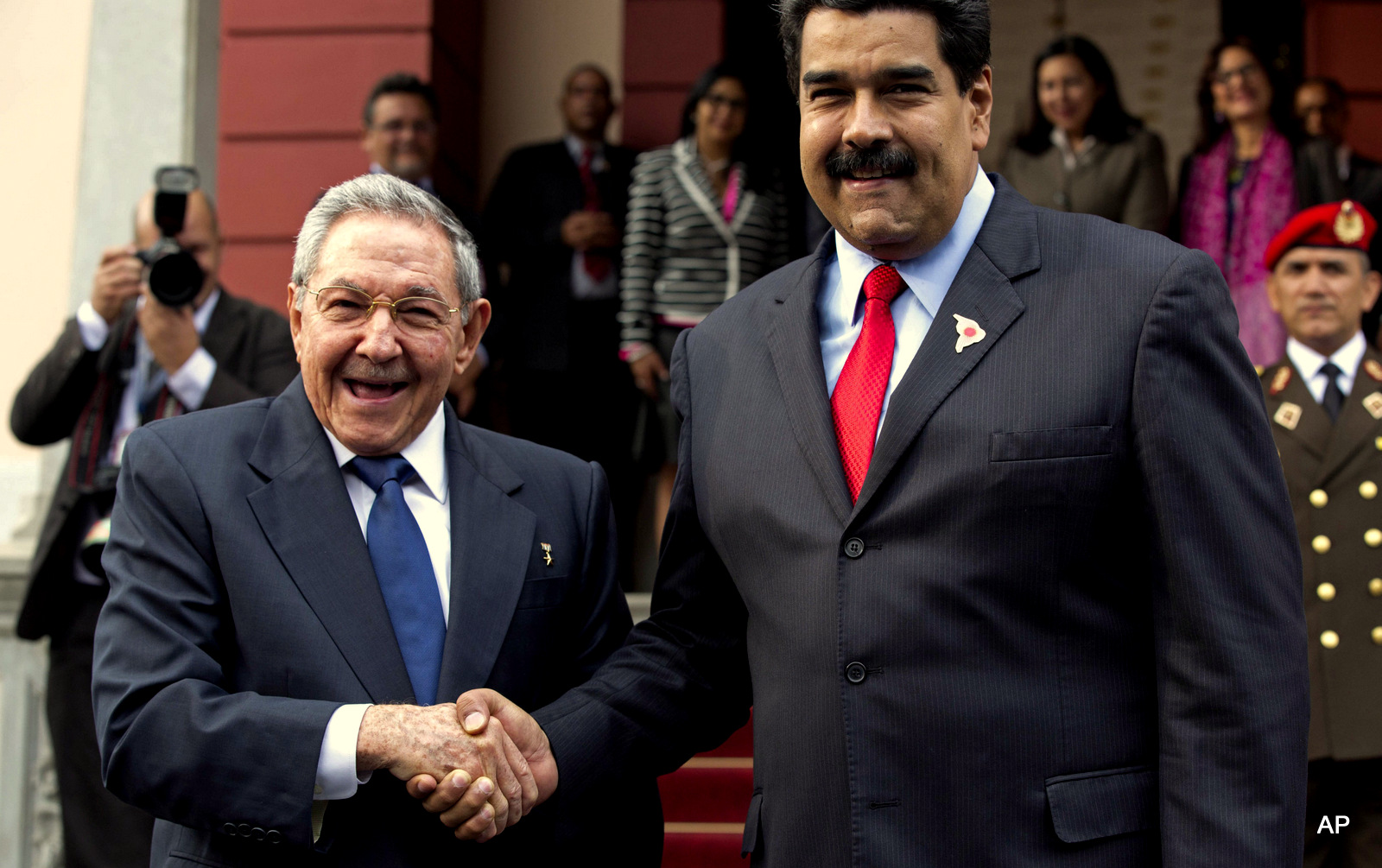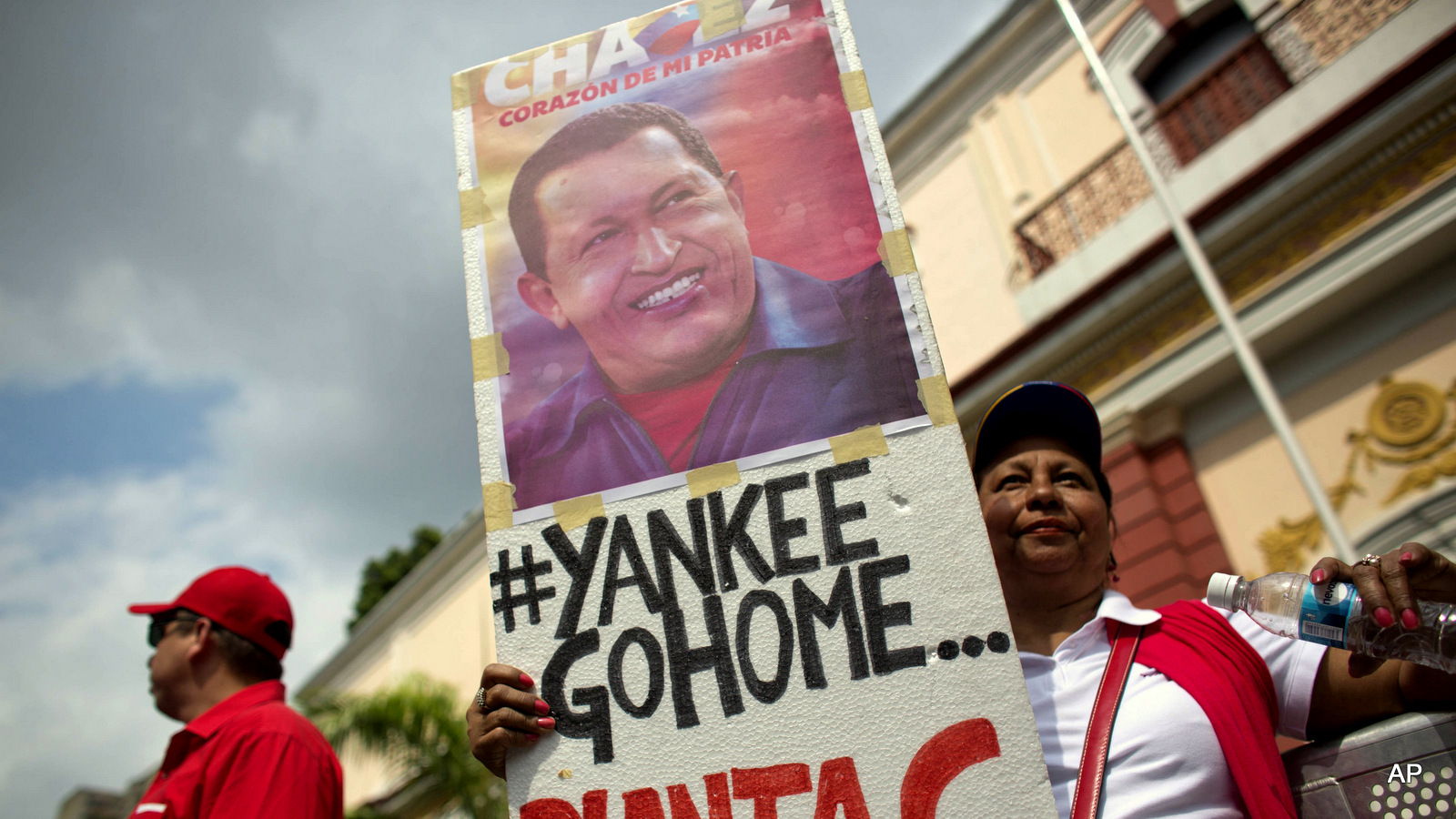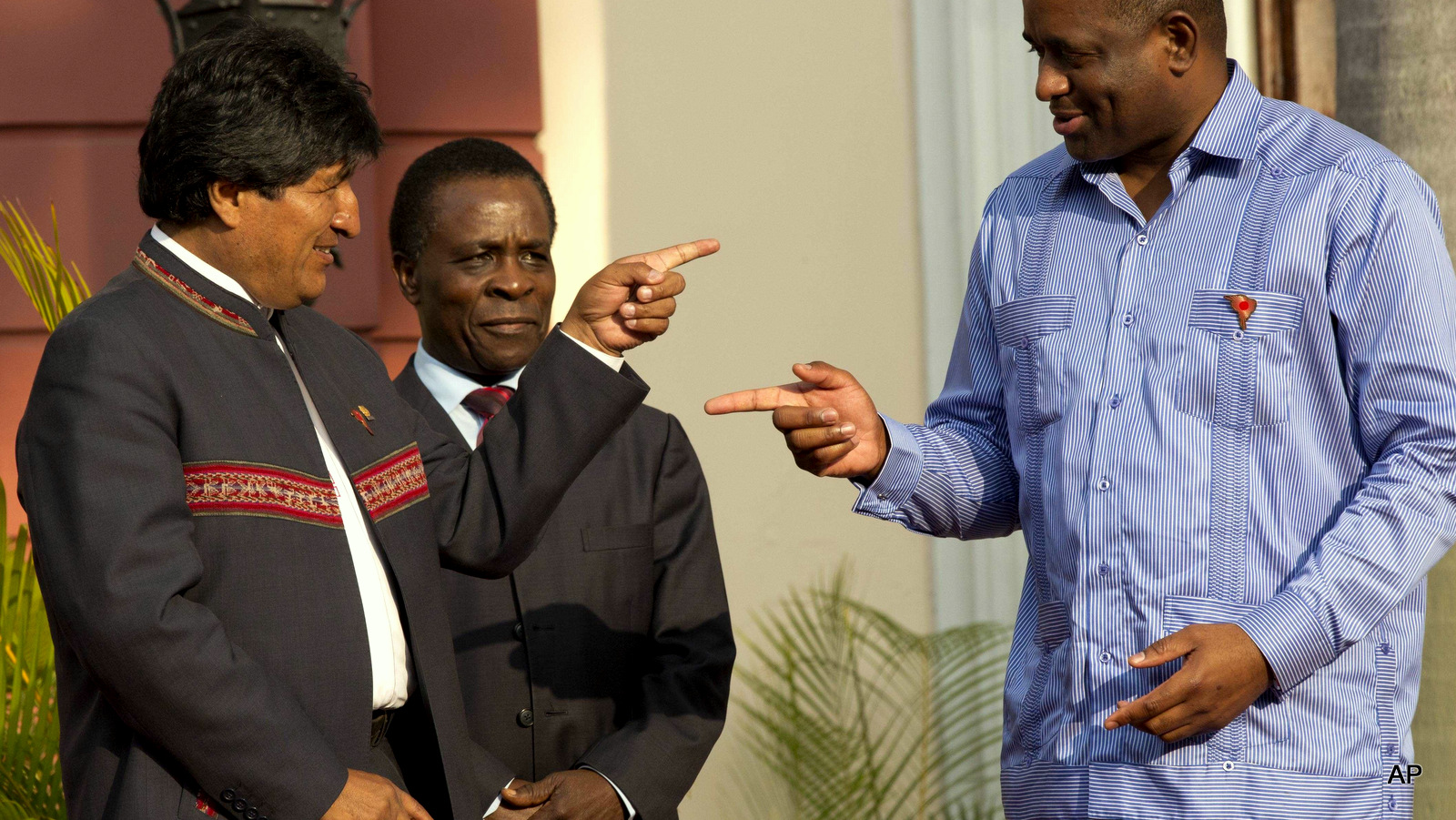 Cuba’s President Raul Castro, left, shakes hands with Venezuela’s President Nicolas Maduro in front of the press after arriving to Miraflores presidential palace for an emergency ALBA meeting in Caracas, Venezuela, Tuesday, March 17, 2015. The Venezuelan-led ALBA bloc of leftist regional governments is expected to express support for Venezuela’s position that its sovereignty is being violated by U.S. attempts to destabilize the country.
Cuba’s President Raul Castro, left, shakes hands with Venezuela’s President Nicolas Maduro in front of the press after arriving to Miraflores presidential palace for an emergency ALBA meeting in Caracas, Venezuela, Tuesday, March 17, 2015. The Venezuelan-led ALBA bloc of leftist regional governments is expected to express support for Venezuela’s position that its sovereignty is being violated by U.S. attempts to destabilize the country. A government supporter holds a sign showing a picture of Venezuela’s late President Hugo Chavez during an anti-imperialist rally at Miraflores presidential palace in Caracas, Venezuela, Wednesday, March 18, 2015. The rally was held amid tensions between Venezuela and the U.S. after President Nicolas Maduro this month said Washington is plotting to oust him and ordered the U.S. Embassy in Caracas to slash staffing levels. The U.S. later levied sanctions against seven Venezuelan officials accused of human rights violations.
A government supporter holds a sign showing a picture of Venezuela’s late President Hugo Chavez during an anti-imperialist rally at Miraflores presidential palace in Caracas, Venezuela, Wednesday, March 18, 2015. The rally was held amid tensions between Venezuela and the U.S. after President Nicolas Maduro this month said Washington is plotting to oust him and ordered the U.S. Embassy in Caracas to slash staffing levels. The U.S. later levied sanctions against seven Venezuelan officials accused of human rights violations. Bolivia’s President Evo Morales, left, speaks with Dominica’s Prime Minister Roosevelt Skerrit, right, as Grenada’s Prime Minister Keith Mitchell stands behind as they gather for a group photo at the start of an emergency ALBA meeting at Miraflores presidential palace in Caracas, Venezuela, Tuesday, March 17, 2015. The Venezuelan-led ALBA bloc of leftist regional governments is expected to express support for Venezuela’s position that its sovereignty is being violated by U.S. attempts to destabilize the country.
Bolivia’s President Evo Morales, left, speaks with Dominica’s Prime Minister Roosevelt Skerrit, right, as Grenada’s Prime Minister Keith Mitchell stands behind as they gather for a group photo at the start of an emergency ALBA meeting at Miraflores presidential palace in Caracas, Venezuela, Tuesday, March 17, 2015. The Venezuelan-led ALBA bloc of leftist regional governments is expected to express support for Venezuela’s position that its sovereignty is being violated by U.S. attempts to destabilize the country. Javier Yanez stands on his balcony where he hung a U.S. and Cuban flag in Old Havana Cuba, Friday, Dec. 19, 2014. Photo credit: AP.
Javier Yanez stands on his balcony where he hung a U.S. and Cuban flag in Old Havana Cuba, Friday, Dec. 19, 2014. Photo credit: AP.
No comments:
Post a Comment